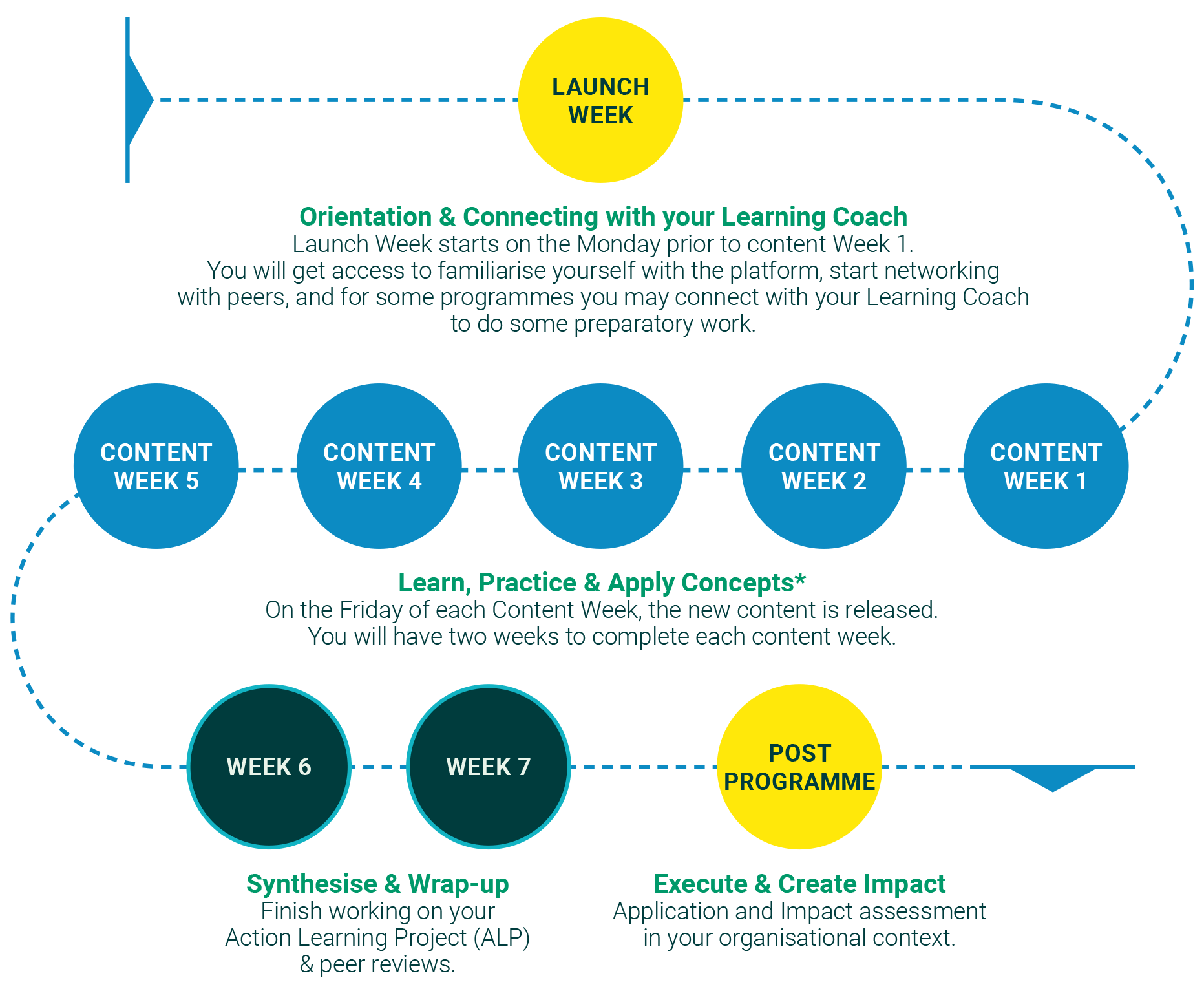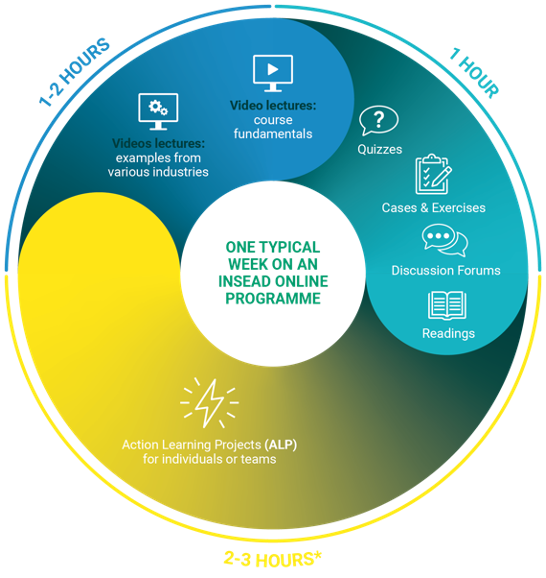Upcoming Sessions
Content Overview
Over 5 weeks, Design Thinking and Creativity for Business will help participants learn how to innovate by using the power of design to get inspired by user insights, generate innovative solution paths, and refine ideas iteratively. The experiential programme format, together with the support of design coaches, maximises the programme’s educational value and outcome.
Creative Thinking
- Understand the differences between traditional lean thinking and creative thinking approaches for problem solving
- Discuss key capabilities behind a creative thinking approach to solve problems and the elements needed to transform an organisation into an innovative one
User-Centered Insighting
- Understand problems from a human perspective, something that is critical to finding meaningful purpose behind any innovation
- Learn novel ways to uncover insights behind what users need and desire
Creative Ideating
- Understand why searching for novelty and usefulness is the essence of creativity
- Unpack the creativity phenomenon and learn strategies to enable creative ideating
Agile Iterating
- Discuss the benefits and challenges of iterating in a 'quick and dirty' manner
- Learn to design, evaluate and execute iterations, moving preliminary ideas to truly desirable, feasible and viable states
Organisational Transformation
- Bring the power of design to your organisation by understanding how to conceive a creative organisational culture
- Discuss the key managerial levers needed to activate an organisational culture that supports creative thinking and creative action
- Learn how to efficiently engage in the process of becoming more innovative
Your Online Learning Journey

Throughout the programme, an INSEAD Learning Coach will be guiding you and helping you maximise the impact of your learning journey.
*Please note the programme may include a pause week(s).
Typical Week on an INSEAD Online Programme
Each week of content follows a very clear path to facilitate learning for busy executives. The platform allows participants to learn at their own pace during each week, by viewing the content, completing assignments and engaging in discussions, taking on average 4-6 hours per week* to complete.
*This is the recommended number of hours per week however please note that working on the Action Learning Project (ALP) may require up to two additional hours/week.
Action Learning Project
Week 1: Identifying an innovation context • Identify a concrete area to apply Design Thinking and Creativity for Business. • The ideal context to put in practice design thinking is an area where a given challenge or situation has not been fully resolved using a “traditional” problem-solving approach. A good context in which to innovate is one that is “visible” (by key stakeholders in your own context); “unsolved” yet “non-trivial”, and “actionable” (so that you can tackle it in a five-week time frame)
Week 2: From insights to innovation opportunities • Who are the key stakeholders in your innovation area? • What matters to them? What are the various user-journeys relevant in your context? What insights emerge from mapping those out? What innovation opportunities are uncovered?
Week 3: Creative strategies in action • How would the new creative strategies learned in the programme help you develop creative solutions to address your innovation opportunities?
Week 4: Dynamic prototyping for agile iterating • What are the assumptions and risks associated with developing your innovative solutions? • How can you test them in an “agile” way?
Week 5: Deploying innovation • What resources, processes, and values would need to be changed in your organisation to deploy your innovative outcome?
For those attending the programme with a group of colleagues from the same company or organisation, the design coach can help you structure a more ambitious team ALP to collaborate and work on together.
There are three phases to the ALP process:
First, you will agree on the scope of your ALP with the learning coach, to make sure it aligns with the learning objectives of the programme and culminates in a concrete end goal. Second, in each of the content weeks, you will apply the tools and concepts from that week to your ALP. Third, at the end of the content weeks, you will synthesise elements from your weekly submissions to propose concrete strategic recommendations for your organisation, and submit them for peer review. In the final week of the programme, the peer review will take place, where every participant will review 2 to 4 other submissions and provide peer feedback. The final ALP and peer review process normally takes between 10-12 days after the programme content finishes.


